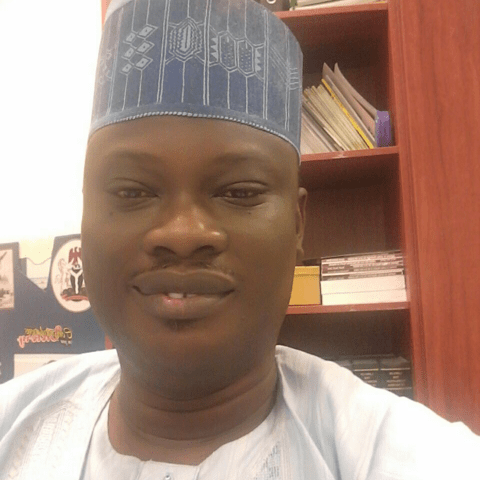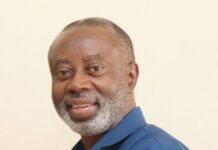I spent part of formative years in the market town of Onitsha, in Anambra state in the mid 1980s. During my sojourn there, I lived with my uncle, then popularly known as‘’Alhaji Umaru’’ who was a trader at Ose market. Our ‘’yard’’ was located at no 33 Ajasa Street very close to Ose market, where my uncle and indeed other traders from across Nigeria plied their trade. Onitsha was as fascinating as it was exciting with its ever hustling and bustling people struggling to earn a living. Everybody worked hard and endlessly so with a brief respite mostly on Sundays when it’s predominantly Christian population, observe ‘’Sabbath’’.
Okene my birthplace and where I came from to live in Onitsha was a sharp contrast with my new abode. While Okene had only one major [Bariki] market, where trading activities take place once every two days between the hours of 8am and 10am on ‘’markets’’ days there were many markets in Onitsha including, Relief, Ochanja, Awada and the Main market, which is the largest in West Africa. And unlike Okene, trading activities take place six days a week from dawn to dusk in Onitsha. Growing up in Okene, it was a common sight to see the women of my Idoji community returning from the Bariki market with the remaining of their unsold wares as early as we set out for school.
Apart from the difference in magnitude of trade between the two towns, it was in Onitsha I saw an endless conurbation of three, four and five story building as far as the eye could see. Okene, with its mostly one story building in a mix development that retains the mud ancestral compounds in a beautiful blend of ancient and modernity, had more in common with ‘’Enu Onitsha’’, the enclave of the original inhabitants of the Onitsha, that is quietly tucked away from the hustle and bustle of the main Onitsha town. Serene and beautiful, Enu Onitsha is the ancestral home of the indigenous people of Onitsha, where the Obi presides over the culture and tradition of the people as their traditional ruler.
Another culture shock for me was the relatively modern urban planning of Onitsha, where the town is delineated along well laid out streets and avenues, unlike Okene, which remained undisturbed along traditional settlements. While, Okene had places like Idogido, Idoji, Idozumi, etc, Onitsha had places like Bright Street, Old Cemetary Road, Emejuru Street, Court Road etc. My sojourn in Onitsha broadened my national outlook and world view as it was a very cosmopolitan town with a rich diversity of Nigerians as residents.
As a young Muslim resident of Onitsha, I remember a place called ‘’Bida’’ that was a sprawling Arewa community, where I attended Islamiya and observed congregational prayers on Fridays. In the 1980s, the Arewa community in Onitsha was in the third generation and so assimilated and integrated where I saw Igbo speaking Hausa people for the first time in my life. And so indigenous had the Arewa community become that they do not return to Kano, Sokoto and Borno states during Muslim holidays of all Eids as they have no other home in the world than Onitsha where they live in peace and prosperity. That Alhaji Umaru, my uncle contested for the position of councilor in Onitsha in 1988 under the zero party system is clear testimony to the citizenship integrity of the predominantly Igbo speaking people of Onitsha, whose civilized disposition allowed for inclusion, equity and fairness to all Onitsha people without prejudice to ethnicity or creed.
I also recall that the most patronized private medical hospital around my part of Onitsha was owned and managed by a Yoruba man, who was simply known as Dr Oni. The hospital eventually became known as ‘’Uno Ogwu’’ Dr Oni [Dr Oni’s hospital] where the personal service of Dr Oni was sought after and his healing prowess was a stuff of legend. I remember vividly, when one my Igbo neigbours strolled with me into Ose market to enthusiastically show the section of the market, where my Ebira traders from Okene a selling yams and other agriculture produce from their farms in Owo in Ondo state, Irebeka in Edo state and Ado in Ekiti state. I had neighbours like Etim ‘’Nwa Calabar’’, Mike ‘’Nwa Bendel’’ and Cosmas ‘’Nw-Igala’’ all around me and I never felt like an outsider throughout my stay in Onitsha.
My lifelong love for High life music, Soukous, Fuji and Afro Juju was developed in Onitsha. Osita Osadebe’s ‘’Makojo’’ and ‘’Osondi Owendi’’ with their rich philosophical lyrics were regularly played on the radio service of Anambra Broadcasting Service [ABS]. So was Mbila Bel’s classic like ‘’Boyaye’’ and Salawa’s ‘’Gentle Lady’’. And no party was complete without dancing to Shina Peter’s ‘’Ace’’ and ‘’Shinamania’’ album. One could safely conclude that this was the zenith of Nigeria’s era of National Integration, social cohesion and unity, where its was possible to be Hausa and Anambra, Yoruba, Efik, Ebira and Anambra.
However, Nigeria has changed as a result of cumulative failure of leadership of the ruling political especial since the advent of the 4th republic in 1999, where divisive politics of identity has reversed the gains towards a united nation of Nigeria, where my Onitsha experience would become an institutionalized national norm. I often look back with nostalgia to the good old days, when Nigeria was one big family with the different ethnic groups as members living in different parts of the family compound and where residency in a place other ones place of origin is considered as home coming.
Fortunately, we are beginning to see a roll back of the reversal of the gains of national integration in the Anambra state, which I still consider my home state, in which I am still emotionally invested. Just before the second year anniversary of Prof Chukwuma Soludo as the governor of Anambra State, he appointed, for the first time in the history of the state, Adebayo Ojeyinka, a Nigerian of Yoruba heritage whose state of origin is Osun but has resided in Anambra state since 1995 [29 years] as a permanent secretary in the Anambra state civil service. And like the ever hospitable and progressive people of Anambra state that I have always known, there were no protests against the appointment of a ‘’non-indigene’’ as permanent secretary but applause and commendation for their governor for demonstrating inclusion, fairness and equity in this instance.
From a turbulent take off of his administration as a result of widespread separatist insurgency in the South East, Prof Soludo has steadily lived up to expectations of his reputation as a development economist, first class scholar and thinker as his steadies at cruising heights with a rich harvest of campaign promises on his second year anniversary. Beyond his giant strides in infrastructural development, prudent and frugal management of state resources and hands on leadership style, Prof Soludo has not been accused even by his opponents of corrupt conversion of state resources for personal benefits of family and cronies.
Governor Soludo’s, democratic disposition, balanced personality and personal integrity are demonstrations a leadership code of conduct that is required to deliver good governance and he seems to be delivering incrementally. But by far his most significant achievement in two years is his demonstration of his rich pan Nigerian nationalist credential, which has seen him deploy a deliberately inclusive administrative style that has clearly shown than with Soludo as governor it is possible to be Yoruba and Anambra. And the significance of this appointment goes beyond Anambra state, as this has silenced those who accuse Ndigbo of wanting from others what they are not willing to give. By this gesture, Soludo has replied this age long tantrum against the Igbo nation of Nigeria in the best possible way. And the main beneficiaries of this commendable act of inclusive leadership will the 2027 Igbo presidential hopefuls who will readily point to Soludo’s Anambra state whenever they are accused of demanding from others what they cannot give.
As the popular Igbo saying goes, ‘’e to’o dike na nka omereme, ome kwa ozo’’ [ when you praise a warrior for his exploits, he will do more], Governor Soludo is encouraged to deepen the culture of inclusion, fairness, justice and equity where it will be possible for a Nigerian to also be Hausa, Kanuri, Ebira etc and Anambra, the Light of the Nation.




